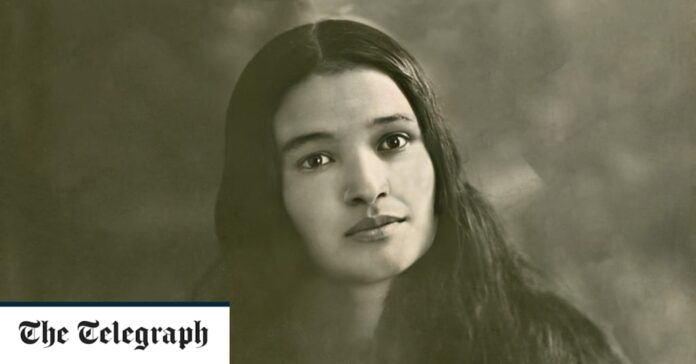Sara Eshonturaeva was a symbol of national Uzbek identity, but hid her culture during Soviet rule. Her story has chilling resonance today
A beautiful young woman with long, dark hair parted at the middle, high cheek bones, and full lips resting together, fixes her gaze to the left of camera. She’s holding a scroll – her acting diploma from the Uzbek Institute of Education, Moscow.
This sepia photograph from 1927 depicts Sara Eshonturaeva, who went on to make ground-breaking achievements in Uzbek theatre. She performed lead roles in the first Shakespeare plays that were translated into Uzbek, was awarded the Stalin Prize, People’s Artist of the USSR and toured internationally representing the USSR – including to the UK to celebrate Shakespeare’s 400th birthday in 1964. She is widely remembered as a founding figure of modern theatre in Uzbekistan and a symbol of national identity.
But an inscription on the back of the photograph reads: “The most unhappy day of my life.”
Only now, 95 years later can the true significance behind this caption be understood, not only in the context of Eshonturaeva’s life, but for the Uzbek culture erased by Soviet rule. As Russian aggression towards Ukraine continues, and while Putin tries to erase Ukraine’s identity and culture, Eshonturaeva’s story – currently told in a new exhibition at Asia House – becomes all the more poignant.


